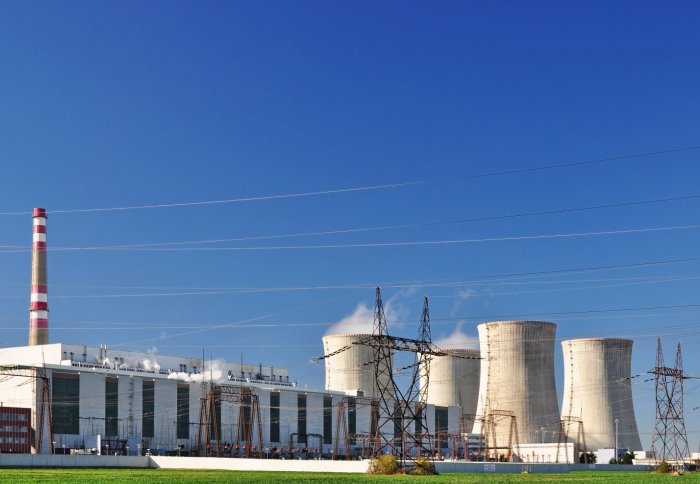

A panel of senior scientists has delivered recommendations to help rejuvenate the UK's nuclear industry and keep the lights on over coming decades.
They say the UK could aim to produce up to 70 per cent of its electricity through nuclear power generation by 2050 and advise government to achieve this through investment in specialist skills at all levels, nuclear research programmes and international collaborations.
The report was led by Sir John Beddington, Chief Scientific Adviser to the UK Government and Honorary Principal Research Fellow at Imperial College London.
It was delivered on Tuesday this week at the same time as the Government's new strategy to make the UK a 'leading civil nuclear energy nation', which draws on the results of almost two years' investigation by the expert group.
International investment allows us to engage with research on an equal footing with scientists outside the UK. This is key as nuclear energy projects are no longer the preserve of just one nation, here we look forward to working more closely alongside key countries including France, America, China, India, Japan and South Korea.
– Robin Grimes
Expert group member and Professor of Materials Physics
The Government's strategy covers the whole of the nuclear industry from building, operating and maintaining new plants to waste management and fuel cycling. Its delivery aims to bring economic benefits and up to 40,000 new jobs designing and building new nuclear power plants.
In a statement, Professor Beddington said: "I am convinced that nuclear power will play a pivotal role in the UK’s energy future. The requirement for nuclear power may exceed current plans for new build, perhaps substantially. It’s therefore crucial that we keep a wide range of technological options open so that we are able to meet this potential demand in a safe and sustainable manner. Today’s announcements on R&D and on skills are the first steps in doing exactly that.
"One of the conclusions of my work last year was that important research in the UK could be hindered through lack of access to the right facilities. I am therefore delighted that significant fundi ng has been allocated today to provide those facilities in the future." New funding includes £15 million for a new world class National Nuclear Users Facility and £12.5 million to join the Jules Horowitz Test Reactor which is being constructed in France to test materials for nuclear fusion applications.
Professor Robin Grimes, former Director of Imperial's Centre for Nuclear Engineering and newly appointed Chief Scientific Advisor to the Foreign and Commonwealth Office (FCO), said:
"For the UK to resume its position as a first ranking nuclear research nation it needs additional tools to carry out active work. We already have access to nuclear research facilities at two national facilities and in our universities, but that has declined quite steeply over the last fifteen years.
"We are now purchasing new equipment for a National Nuclear Users Facility that will complement and support laboratory research and enable us to carry out research to help us design for the next generation nuclear reactor. In one facility we will be able to recreate the conditions inside a reactor and give university academics the opportunity to study the wear and tear experienced by construction materials.
"International investment allows us to engage with research on an equal footing with scientists outside the UK. This is key as nuclear energy projects are no longer the preserve of just one nation, here we look forward to working more closely alongside key countries including France, America, China, India, Japan and South Korea.
"As an example, a flourishing collaboration with India, funded by Research Councils UK, allows us to apply our expertise with highly advanced computer analytical techniques to understand and interpret experimental data generated by our partners in Indian laboratories."
The recommendations recognise the Government's position that nuclear power will continue to play an important role in the UK to 2050 and beyond and that a wide range of technologies may be required to meet the challenges of an expanded demand for nuclear power.
Professor Beddington's expert group included, among others: Professor David McKay, Chief Scientific Adviser to the Department of Energy and Climate Change (DECC); Professor John Perkins, Chief Scientific Adviser to the Department for Business, Innovation and Skills (BIS) and former Principal of Imperial's Faculty of Engineering, and Professor Robin Grimes.
Article text (excluding photos or graphics) available under an Attribution-NonCommercial-ShareAlike Creative Commons license.
Photos and graphics subject to third party copyright used with permission or © Imperial College London.
Reporter
Simon Levey
The Grantham Institute for Climate Change

Contact details
Tel: +44 (0)20 7594 5650
Email: s.levey@imperial.ac.uk
Show all stories by this author




Leave a comment
Your comment may be published, displaying your name as you provide it, unless you request otherwise. Your contact details will never be published.